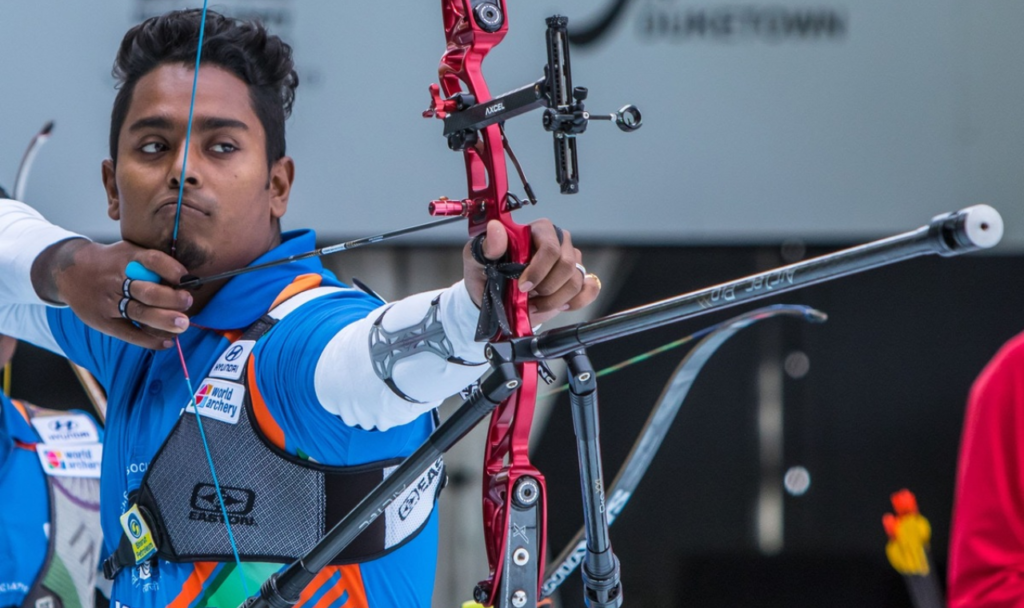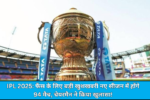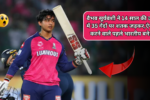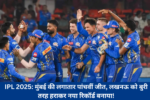The Indian archery team is facing hurdles in securing U.S. visa appointments for the upcoming Archery World Cup Stage-1, scheduled to be held in the United States later this month. This situation echoes past visa-related difficulties faced by Indian athletes and raises concerns over the bureaucratic delays affecting sports participation on an international level.
Visa Challenges for Indian Archers
As of now, there are no confirmed reports of the entire Indian archery team being denied visas, but visa delays and appointment scheduling issues remain a recurring challenge. The U.S. visa application process, especially for sports teams traveling for international competitions, has been known to be complex and time-consuming.
Historically, Indian archers and other sportspersons have faced obstacles in obtaining travel visas, leading to last-minute withdrawals or disruptions in their training and competition schedules.
Past Visa Issues Faced by Indian Athletes
In one of the most notable incidents, 21 out of 31 members of the Indian archery team, including renowned coach Chae Won Lim, had their U.S. visa applications rejected ahead of the 2015 World Archery Championships in Yankton, South Dakota. U.S. authorities reportedly denied visas due to concerns that some members might not return to India after the event. This led to India withdrawing from the championship, causing a major setback for the sport in the country.
2021: Swiss Visa Denial Before World Cup Stage-2
In another instance, in 2021, the Indian recurve archery team was denied Swiss visas due to COVID-19 travel restrictions, preventing them from participating in the Archery World Cup Stage-2 in Lausanne. The Swiss government’s decision impacted the team’s Olympic preparations. (Source).
Why Are Visa Delays a Recurring Issue?
1. Lengthy US Visa Processing Times
According to the U.S. State Department, visa processing times for Indian applicants have been exceptionally long, especially for first-time visitors. As of September 2024, Indian applicants faced a wait time of up to 404 days for B1/B2 (business/tourist) visas, which are often required for sports participation.
For athletes, securing expedited appointments is crucial, but visa appointment slots are limited and often fully booked months in advance. (Source: U.S. Visa Appointment Wait Times).
2. US Visa Rejections Based on Return Concerns
Sports visas, often categorized under P-1A (Internationally Recognized Athlete), require proof that the applicant intends to return to their home country after the event. In the past, U.S. immigration authorities have rejected visa applications for Indian athletes, citing concerns about their intention to overstay or not return after the competition.
3. Lack of Government Intervention
Unlike other major sporting nations, India does not have a dedicated sports visa facilitation department that works closely with embassies to ensure smooth visa processing for athletes. In contrast, countries like the UK, Canada, and Australia have sports visa fast-track policies to support international participation.

What Can Be Done to Resolve the Issue?
To prevent future visa hurdles, the Archery Association of India (AAI) and the Ministry of Youth Affairs and Sports need to proactively engage with the U.S. Embassy and the Ministry of External Affairs (MEA) to expedite the visa process for athletes.
1. Request Expedited Visa Processing
The U.S. government allows expedited visa appointments under special circumstances, including participation in international events. The Indian government should formally request emergency visa processing for the archery team.
2. Dedicated Sports Visa Desk in MEA
The Ministry of External Affairs should establish a dedicated sports visa desk that works exclusively on visa approvals for Indian sportspersons. Countries like the UK have similar programs that ensure national teams do not face travel delays. UK Sports Visa Policy.
3. Early Visa Applications & Policy Advocacy
Sports federations should start the visa process 6–8 months in advance for tournaments held in countries with complex visa requirements. The Indian Olympic Association (IOA) and the Sports Ministry should also engage in diplomatic discussions to create a framework for easier visa access for athletes.
Impact on Indian Archery’s Global Performance
Visa issues not only impact the logistics of participation but also affect athlete morale and preparation. Missing key international tournaments reduces ranking points, impacts world rankings, and limits exposure to high-level competition, which is crucial for Olympic qualification and performance.
India has emerged as a strong contender in world archery, with stars like Deepika Kumari, Atanu Das, and Abhishek Verma making a mark in international competitions. However, repeated administrative roadblocks threaten India’s standing in the sport and create unnecessary hurdles for athletes.
Conclusion
With the World Archery Cup Stage-1 approaching, resolving visa challenges must be a top priority for Indian sports authorities. While no official visa denials have been reported yet, past incidents highlight the urgent need for systemic reforms in handling visas for Indian athletes.
The U.S. and Indian governments, along with sports bodies, must collaborate to ensure that Indian athletes can compete on the world stage without bureaucratic delays. Until these structural issues are addressed, India’s sporting potential may continue to be hampered by administrative red tape rather than competition on the field.

Pankaj Kumar is a journalist at Chandigarh X, covering admit cards, recruitment, and government schemes. His articles provide readers with detailed insights into application processes, eligibility, and exam updates.
Outside of work, Pankaj enjoys traveling, fitness, and cricket, often participating in local matches on weekends.



